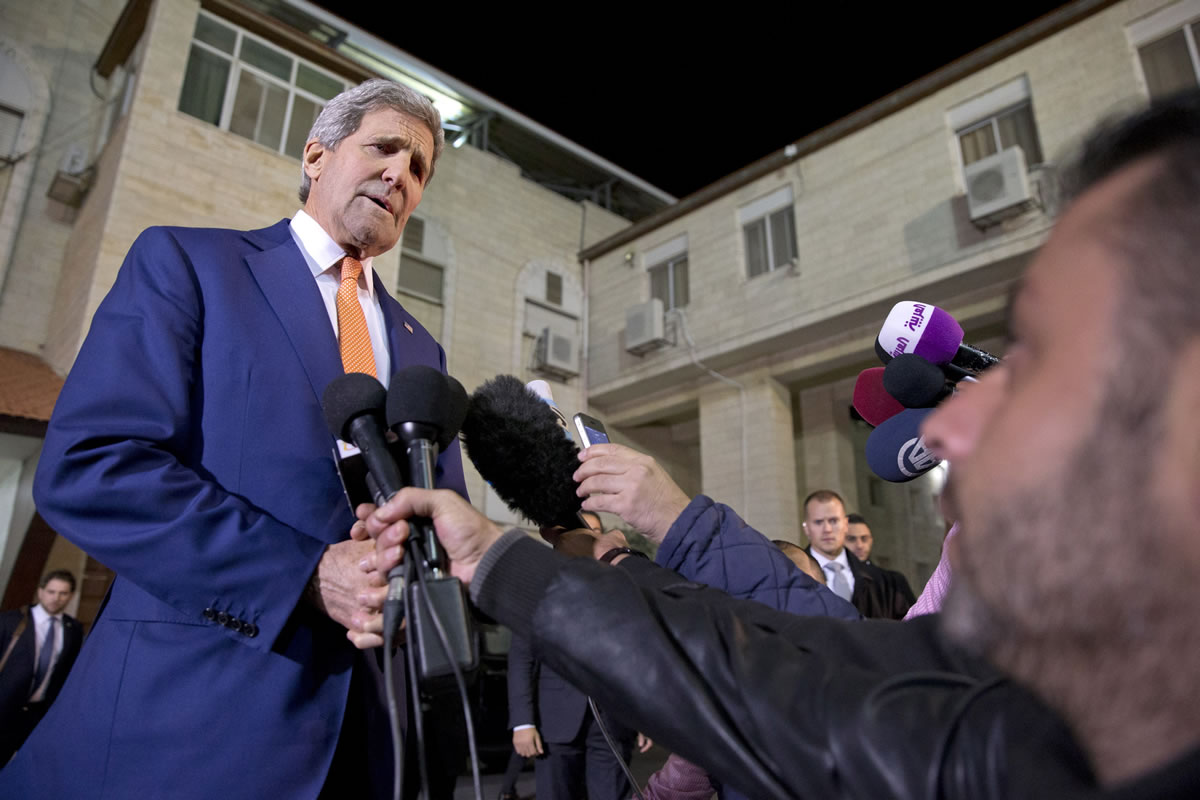JERUSALEM — A new spat emerged between the Israeli government and Washington over Jewish settlements on Tuesday, as U.S. Secretary of State John Kerry visited Israel and the West Bank for the first time in more than a year.
As Kerry set aside his goal of a long-sought peace accord to make way for more modest hopes of an end to two months of deadly violence, Israeli Prime Minister Benjamin Netanyahu called for the recognition of some existing settlement blocs in exchange for steps to ease tensions with the Palestinians.
In Washington, the State Department quickly rejected any suggestion the U.S. would alter its long-standing opposition to settlements or recognize them as legitimate outside of a peace agreement.
There were no signs that Kerry made headway in easing tensions during his meetings with Netanyahu and Palestinian President Mahmoud Abbas. As Kerry’s plane touched down, a Palestinian motorist rammed his vehicle into a group of Israeli soldiers, wounding three, before the attacker was shot and wounded, the Israeli military said. It was the latest in a spate of violence that has sunk the chances of a renewed peace push during the Obama administration’s final year.



